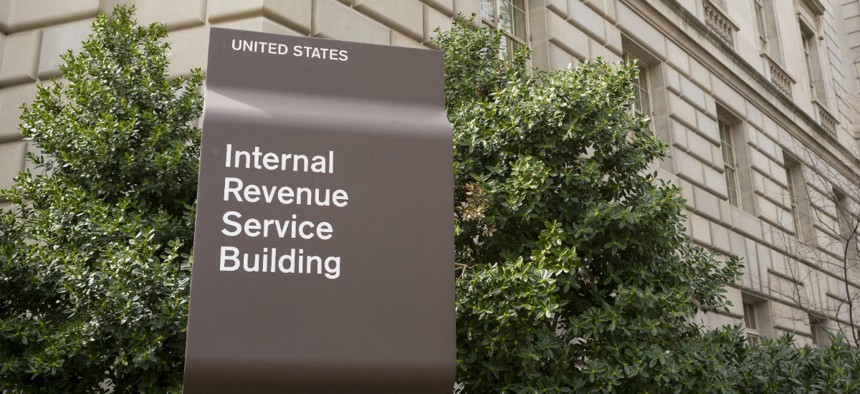
By Rob Crandall / Shutterstock.com
Treasury and IRS Move to Protect Donor Anonymity
Controversy over alleged targeting of conservatives prompts new rule for nonprofits.
Five years after the alleged “targeting” of conservative nonprofits by the Internal Revenue Service, the Treasury Department and the tax agency on Monday released a new rule that relieves tax-exempt groups from having to reveal the personal identity information of their donors.
The move by the Trump administration furthers a long-stated goal of conservatives worried that forced disclosure of donor identities is intrusive and inhibits giving because of fear of political retaliation.
“Americans shouldn’t be required to send the IRS information that it doesn’t need to effectively enforce our tax laws, and the IRS simply does not need tax returns with donor names and addresses to do its job in this area,” said Treasury Secretary Steven Mnuchin. He challenged the notion that the change will harm transparency. “The same information about tax-exempt organizations that was previously available to the public will continue to be available, while private taxpayer information will be better protected,” he said. “The IRS’s new policy for certain tax-exempt organizations will make our tax system simpler and less susceptible to abuse.”
Since the 1960s, the IRS has required such information from certain categories of nonprofits on annual returns, but the new revenue procedure, Treasury stressed, does not relieve tax-exempt groups organized under section 501(c)(3) (charities) or section 527 (political) from their statutory disclosure obligations. “But it relieves other tax-exempt organizations of an unnecessary reporting requirement that was previously added by the IRS” to groups that don’t generally receive tax-deductible contributions, Treasury said.
Tax-exempt organizations described by section 501(c), other than section 501(c)(3) organizations will no longer be required to include the donor’s personal information on the Schedule B of their Forms 990 or 990-EZ. These include labor unions, labor unions and volunteer fire departments, issue-advocacy groups and local chambers of commerce, veterans groups and community service clubs.
Their tax forms, Treasury added, will continue to be open for public inspection.
One reason for the change, the agencies said, is that Congress changed the gift tax requirements, rendering such disclosure less necessary for the IRS. Additionally, “the new policy will better protect taxpayers by reducing the risk of inadvertent disclosure or misuse of confidential information—an especially important safeguard for organizations engaged in free speech and free association protected by the First Amendment,” Treasury said. “Conservative tax-exempt groups were disproportionately impacted by improper screening in the previous administration, including what the Treasury Inspector General for Tax Administration concluded were inappropriate inquiries related to donors.”
Finally, the change is said to relieve both the agency and the nonprofits of paperwork.
The new rule was welcomed by House Ways and Means Committee Chairman Rep. Kevin Brady, R-Texas, who said, “Free speech is a foundational principle of our country, which is why I’m encouraged by this announcement from the Department of Treasury on tax-exempt organizations. For years, members of the Ways and Means Committee have fought for an IRS that is accountable to the taxpayer and does not target or single-out any person or entity based on their political beliefs. I applaud the Trump administration for strengthening First Amendment protections and prioritizing personal freedom and privacy with this action.”
Paul Streckfus, editor of a newsletter on Exempt Organizations, did not agree. “The Trump administration caved to the demands of the dark money coalition,” he told Government Executive. “Under the new policy, very large donations will be hidden from the IRS's view, for all practical purposes. This means a few large contributors will be able to fund a section 501(c)(4) political organization with no footprint. This knowledge is important because prohibited inurement or private benefit may be accruing to the donors. If most of the benefit of a social welfare organization under section 501(c)(4) goes to benefit private interests, where is the public benefit, the social welfare that is the basis for exempt status?”







